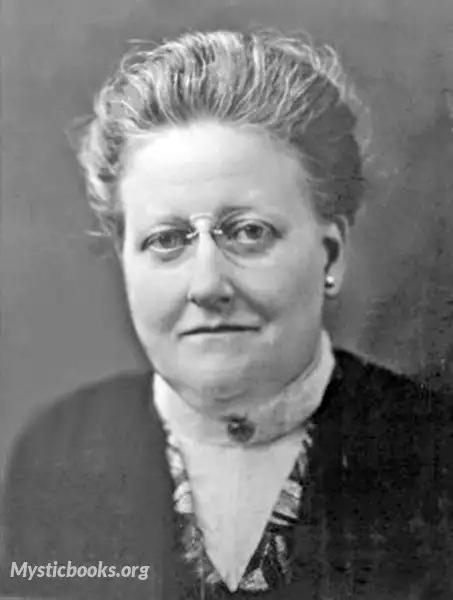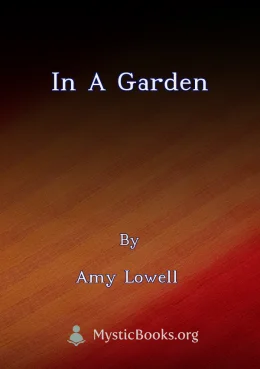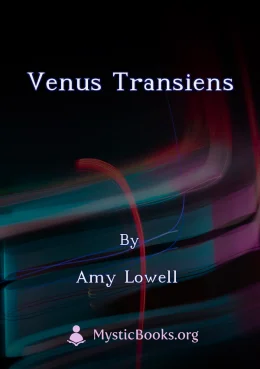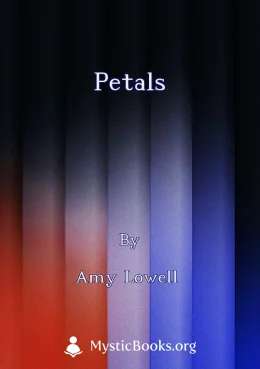
Timeline
Title
Country/Nationality
Amy Lowell
Amy Lawrence Lowell was an American poet of the imagist school, which promoted a return to classical values. She posthumously won the Pulitzer Prize for Poetry in 1926.
Amy Lowell was born on February 9, 1874, in Boston, Massachusetts, the daughter of Augustus Lowell and Katherine Bigelow Lowell. A member of the Brahmin Lowell family, her siblings included the astronomer Percival Lowell, the educator and legal scholar Abbott Lawrence Lowell, and Elizabeth Lowell Putnam, an early activist for prenatal care. They were the great-grandchildren of John Lowell and, on their mother's side, the grandchildren of Abbott Lawrence.
School was a source of considerable despair for the young Amy Lowell. She considered herself to be developing "masculine" and "ugly" features and she was a social outcast. She had a reputation among her classmates for being outspoken and opinionated.
Lowell never attended college because her family did not consider it proper for a woman to do so. She compensated for this lack with avid reading and near-obsessive book collecting. She lived as a socialite and travelled widely, turning to poetry in 1902 after being inspired by a performance of Eleonora Duse in Europe. After beginning a career as a poet when she was well into her 30s, Lowell became an enthusiastic student and disciple of the art.
Lowell's partner Ada Dwyer Russell was the subject of many of Lowell's romantic poems, and Lowell wanted to dedicate her books to Russell, but Russell would not allow that, and relented only once for Lowell’s biography of John Keats, in which Lowell wrote, "To A.D.R., This, and all my books. A.L." Examples of these love poems to Russell include the Taxi, Absence, A Lady In a Garden, Madonna of the Evening Flowers, Opal, and Aubade. Lowell admitted to John Livingston Lowes that Russell was the subject of her series of romantic poems titled "Two Speak Together". Lowell's poems about Russell have been called the most explicit and elegant lesbian love poetry during the time between the ancient Sappho and poets of the 1970s. Most of the private correspondence in the form of romantic letters between the two were destroyed by Russell at Lowell's request, leaving much unknown about the details of their life together.
Books by Amy Lowell

Men, Women and Ghosts
The imagist school was founded by Ezra Pound but later defined by Lowell. Simple speech is favoured over lyricism, freedom of rhythm over the metrical, clarity over opacity.

A Gift
In the realm of Amy Lowell's captivating poem, "A Gift," readers are presented with a lyrical offering, a vessel filled with the essence of love and devotion. The poet, in a gesture of profound affection, bestows upon her beloved a collection of care...

In a Garden
LibriVox volunteers bring you 16 different recordings of In a Garden by Amy Lowell. This was the weekly poetry project for the week of October 14th, 2007.

Venus Transiens
LibriVox volunteers bring you 18 different recordings of Venus Transiens by Amy Lowell. This was the weekly poetry project for the week of February 10th, 2008.

Stupidity
This collection of poems by Amy Lowell explores the theme of human folly and the absurdity of life. Written in a sharp and witty style, the poems offer a critical look at society, relationships, and the human condition.

Petals
“Petals” is a poem by Amy Lowell, published in her collection *A Dome of Many-Colored Glass* (1912). It is a characteristic example of Lowell’s imagist style, characterized by its focus on sensory detail, precise language, and evocative imagery. The...

Sword Blades and Poppy Seed
Sword Blades and Poppy Seed is a volume of poems by Amy Lowell, published in 1914. The poems in this collection are known for their use of vivid imagery, symbolism, and free verse. Lowell was a leading figure in the Imagist movement, and her work is...

Dome of Many-Coloured Glass
This collection of poems by Amy Lowell is noted for its "quaint pictorial exactitude and bizarrerie of color." Critics have compared Lowell's work to "Flemish masters" and "Dutch tulip gardens" for its vivid and fantastical imagery.

Diaries of Court Ladies of Old Japan
These three diaries offer a fascinating glimpse into the lives of women in the Japanese court during the Heian Period. They are written in a frank and engaging style, and they provide a wealth of information about the daily lives, thoughts, and feeli...